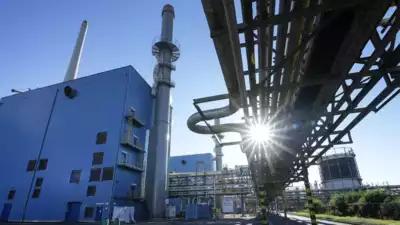Germany's Economic Struggles Amid Energy Crisis
For most of this century, Germany has been a global economic powerhouse, leading in high-end products like luxury cars and industrial machinery. However, the recent energy crisis, triggered by Russia's invasion of Ukraine and the subsequent loss of cheap natural gas, has exposed longstanding flaws in its economy.

The International Monetary Fund and the European Union now expect Germany's economy to shrink this year, making it the worst-performing major developed economy. This sudden downturn has sparked widespread criticism and debate about the future direction of the country's economic policies.
Deindustrialization Risk
Christian Kullmann, CEO of Evonik Industries AG, warns of "deindustrialization" due to high energy costs and government inaction on other chronic problems. He points out the symbols of earlier success in the Ruhr Valley industrial region, now struggling with the energy transition.
Government Response and Industry Adaptation
The German government has proposed a cap on industrial electricity prices to aid the economy through the renewable energy transition, but this has faced resistance. Meanwhile, companies like Evonik and Drewsen Spezialpapiere are adapting by shifting to alternative energy sources and exploring hydrogen as a substitute for gas.
Challenges and Future Prospects
Germany's economic challenges include a shortage of skilled labor, bureaucratic delays in clean energy projects, and reliance on Russian gas. The government's recent proposals have been criticized as insufficient, and there is a growing urgency for decisive action to prevent further economic decline.









Comments